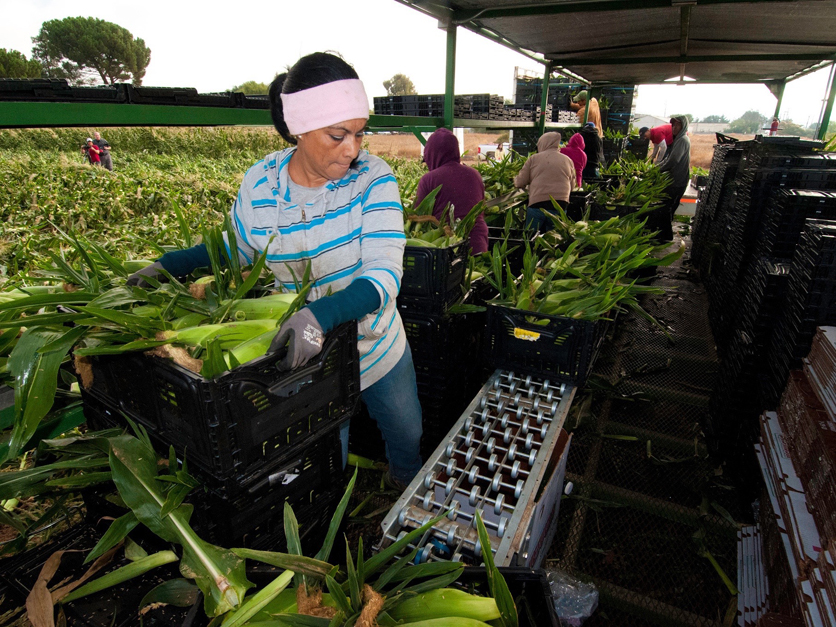WASHINGTON, Oct. 25, 2017 - The House Judiciary Committee narrowly approved a proposed new agricultural guestworker program after two days of heated debate in which Democrats took a page from President Trump's campaign playbook and argued that the plan would undercut U.S. wages by importing low-cost labor.
The Agricultural Guestworker Act proposed by Judiciary Chairman Bob Goodlatte,, R-Va., would replace the existing H-2A program with an H-2C system that allow imported workers to work year-round, a priority for dairy producers, at potentially lower wage rates than now required.
The bill, approved 17-16, “will assure a reliable workforce by creating a program that is market-driven and adaptable,” said Goodlatte.
The new program would also drop requirements that employers provide housing and transportation to farmworkers. However, employees would no longer be limited to working on the farm that applied for their visa.
The bill would initially allow as many as 450,000 visas to be issued, including 40,000 set aside for meat and poultry processors. The cap could be increased on an annual basis to meet demand.
House Agriculture Chairman Mike Conaway, R-Texas, praised the bill. "As a former chairman of the House Agriculture Committee, Mr. Goodlatte understands the challenges facing farmers and ranchers. His bill cuts red tape and institutes a flexible program that accounts for the different labor needs of various producers – be it the ongoing needs of a dairy operation or the seasonal needs of specialty crop farmers."
Dairy producers have been especially frustrated with H-2A, which is restricted to seasonal employment. “The deepening dairy farm worker shortage is a very real problem – one that poses a major threat to our farms, the host of businesses connected to dairy and a vital part of food production in America," Dairy Business Milk Marketing Cooperative, which represents about 800 Midwest, said in a statement.
Two Republicans who have been especially critical of illegal immigration voted against the measure, Steve King of Iowa, and Louie Gohmert of Texas.
King disputes industry arguments that farmers and meat processors can’t find sufficient domestic labor, and he expressed concern during the committee debate that meat processors could use the bill to replace their existing workforce with lower-paid H-2C workers.
Other Republicans as well as Democrats argued that agriculture needed immigrant labor.
But Democrats charged that the bill had so few employee protections that the imported workers would amount to “indentured servants” or even slaves. Democrats, who repeatedly but unsuccessfully tried to amend the bill during the debate, cited attacks on the bill by Breitbart News, the populist conservative website overseen by Steve Bannon.
Breitbart charged in a recent news article that the “huge supply of temporary H-2C visa-workers would drag down Americans’ wages because the outsourcing workers would be paid a government-set wage slightly above the minimum wage."
Committee member Luis Gutierrez, D-Ill., said the bill has no future in the Senate, where it would face a certain Democratic filibuster.
Rep. Zoe Lofgren, D-Calif.,, asserted that the H-2C wages would be so low that workers would only accept the visas so they could gain entry to the United States and find non-farm jobs. The “only reason to come in is to disappear. It will promote unauthorized immigration into the United States, something that all of us are opposed to.”
Rep. Pramila Jayapal, D-Wash., said, “What this bill seeks to do is to drive out American workers who are earning more than is required in this bill."
Under H-2A, farms must pay workers a rate that the Labor Department decides is common for the occupation and region and won’t harm U.S. workers. Goodlatte said the H-2A wages are “artificially inflated.”
The H-2C wages would have to be at least $8.34 an hour for farmworkers, or 15 percent over the federal minimum wage. The wage floor for processing jobs would be 50 percent over the minimum wage. But Democrats alleged that many farmworkers would actually earn less than the bill's minimums because employers would be allowed to deduct the cost of clothing, safety equipment and health insurance.
Under the Fair Labor Standards Act, the cost of employer-required uniforms and “tools of the trade” cannot be deducted from a worker's pay if they reduce it below the minimum wage, according to the Labor Department.
Republicans fought off Democratic proposals to tighten the wage requirements, arguing that competition among farms for labor would ensure that workers are paid adequately.
Prior to the committee debate, Goodlatte had made several changes in his original proposal to appeal to committee Republicans. Under the original version, the new H-2C program was scheduled to take effect in two years, and workers who are in the country illegally would have been provided work authorization in the interim. The new version drops that work authorization for illegal immigrants and would implement the new program in six months.
The new version also drops a provision allowing existing workers to qualify for up to 10,000 green cards annually. Both versions would require illegal workers to return to their home country in order to qualify for the H-2C visas.
Demand for H-2A workers has grown sharply as farms have struggled to find workers. The government certified more than 200,000 H-2A positions in fiscal 2017, a 21 percent increase over 2016 and a 103 percent increase since 2013, according to an analysis by the American Farm Bureau Federation.
Florida, Georgia, North Carolina, Washington and California have the largest number of H-2A workers, in that order.
The ranking Democrat on the Senate Judiciary Committee, Dianne Feinstein of California, has sponsored replacements for H-2A but she told Agri-Pulse this week that there has been no discussion of moving a guestworker bill in the Senate.
#30


